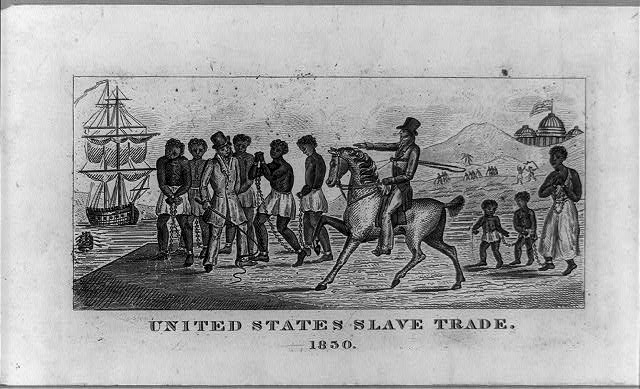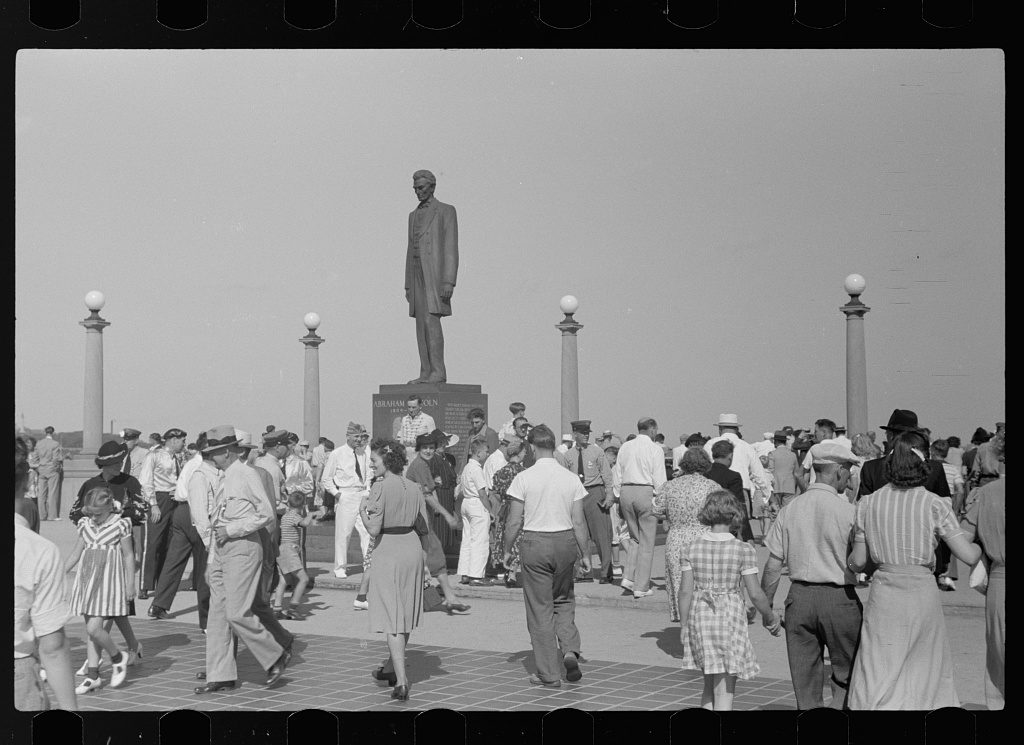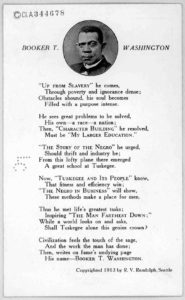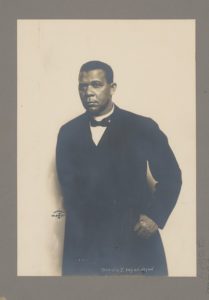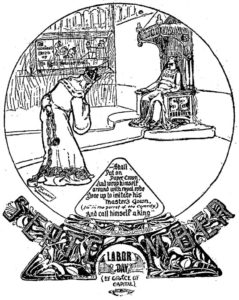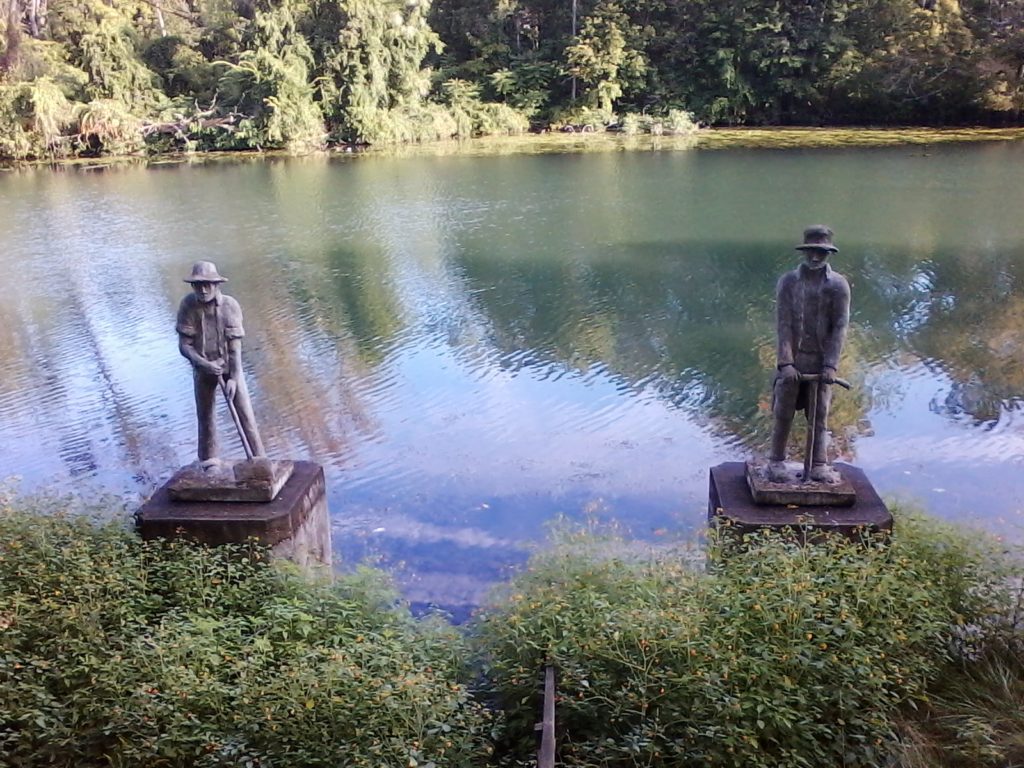An American trio
… Labor is one of the great elements of society – the great substantial interest on which we all stand. Not feudal service, or predial toil, or the irksome drudgery by one race of mankind subjected, on account of their color, to another; but labor, intelligent, manly, independent, thinking and acting for itself, earning its own wages, accumulating those wages into capital, educating childhood, maintaining worship, claiming the right of the elective franchise, and helping to uphold the great fabric of the State – that is American labor; and all my sympathies are with it, and my voice, till I am dumb, will be for it. – Daniel Webster (according to Google Books (p464-65) from a speech at Faneuil Hall on October 24, 1848)
During a speech in New Haven, Connecticut on March 6, 1860 Abraham Lincoln referred to the Lynn (Massachusetts) shoeworkers’ strike:
… Another specimen of this bushwhacking, that “shoe strike.” [Laughter.] Now be it understood that I do not pretend to know all about the matter. I am merely going to speculate a little about some of its phases. And at the outset, I am glad to see that a system of labor prevails in New England under which laborers can strike when they want to [Cheers,] where they are not obliged to work under all circumstances, and are not tied down and obliged to labor whether you pay them or not! [Cheers.] I like the system which lets a man quit when he wants to, and wish it might prevail everywhere. [Tremendous applause.] One of the reasons why I am opposed to Slavery is just here. What is the true condition of the laborer? I take it that it is best for all to leave each man free to acquire property as fast as he can. Some will get wealthy. I don’t believe in a law to prevent a man from getting rich; it would do more harm than good. So while we do not propose any war upon capital, we do wish to allow the humblest man an equal chance to get rich with everybody else. [Applause.] When one starts poor, as most do in the race of life, free society is such that he knows he can better his condition; he knows that there is no fixed condition of labor, for his whole life. I am not ashamed to confess that twenty five years ago I was a hired laborer, mauling rails, at work on a flat-boat — just what might happen to any poor man’s son! [Applause.] I want every man to have the chance — and I believe a black man is entitled to it — in which he can better his condition — when he may look forward and hope to be a hired laborer this year and the next, work for himself afterward, and finally to hire men to work for him! That is the true system. (from The History Place)
… And in this connection it is well to bear in mind that whatever other sins the South may be called to bear, when it comes to business, pure and simple, it is in the South that the Negro is given a man’s chance in the commercial world, and in nothing is this Exposition more eloquent than in emphasizing this chance. Our greatest danger is that in the great leap from slavery to freedom we may overlook the fact that the masses of us are to live by the productions of our hands, and fail to keep in mind that we shall prosper in proportion as we learn to dignify and glorify common labour, and put brains and skill into the common occupations of life; shall prosper in proportion as we learn to draw the line between the superficial and the substantial, the ornamental gewgaws of life and the useful. No race can prosper till it learns that there is as much dignity in tilling a field as in writing a poem. It is at the bottom of life we must begin, and not at the top. Nor should we permit our grievances to overshadow our opportunities. – Booker T. Washington at the September 18, 1895 Cotton States and International Exposition in Atlanta, according to History Matters at George Mason University
_______________________________
Apparently and unfortunately Sumpter wasn’t blessed with the entrepreneurial gene. I think a few years ago when Cuba allowed some people to start their own business some people opened barber shops. Given the agonizing struggle of elementary school art class, unable to draw (or cut) straight, I don’t think that would have worked out for me. I’m grateful for the businesses that have had me working for them and the good employers I’ve had over all the years.
I was going to wish everyone a Happy Labor Day, but thanks to International May Day and American Labor Day, by Boris Reinstein (at Project Gutenberg, no date found) I’ve learned that unlike May Day, Labor Day is merely a capitalist ploy:
May Day was thus created by the workingmen themselves, in defiance of the capitalist class and its governments, and up to the present time the working people in many countries are compelled on the First of May to fight for their holiday at the sacrifice of their jobs, liberty, blood, and even life. When the police and cossacks of different countries appear on the scene on May Day it is always for the purpose of clubbing, maiming, arresting, and killing working people; for the police and cossacks recognize that May Day is the drilling day for the Social Revolution.
The American Labor Day, on the contrary, was a “gift” which the workers received from their masters, the capitalists, through the capitalist politicians. That first Monday in the month of September was made a legal holiday under the name of Labor Day, at first by the legislature of one state some thirty years ago; the politicians of other states followed the clever example, so that at present Labor Day is a legal holiday all over the country.
A vampire, when he settles down upon the body of a sleeping person and sucks its blood, is known to fan his victim with his wings, to soothe the victim’s pain, and to prevent him from waking up and driving the vampire away. So was the Labor Day created by the political agents of the American capitalists to fan the sleeping giant, the American working class, while the capitalists are sucking its blood.
American Labor Day can also be considered as a modern, capitalist version of the ancient custom of the days of serfdom and slavery. In those days the masters, for recreation and amusement, often-times set aside one day to celebrate the “enthronement of slaves.” They would take a slave, take the chains off his limbs, put him on a mock throne, put a mock crown on his head and, bowing to him in mock humility and obedience, would humbly serve him and overwhelm him with flattery. And the Silly Pool on the mock throne would throw out his chest and swell with pride. But the day of mockery over, the chains were again clapped on his limbs, and the miserable slave, groaning, would resume his life of a beast of burden.
Likewise with the unawakened American workman on Labor Day. On that day the chains of wage-slavery are, figuratively speaking, taken off his limbs; he is made the hero of the day; his masters, the capitalists, stand before him in mock humility; their spokesmen in the press, pulpit and on their political platforms, overwhelm him with flattery; and the modern Silly Fool, likewise, throws out his chest and swells with pride. But, the day of mockery and of the Fool’s Paradise over, the masters,—who during this day are only slyly smiling—break out into sardonic laughter—though unheard by the slave—clap the chains back on his limbs and he again hears only the crack of the whip of Hunger and Slavery.
It is only natural, therefore, that when the capitalist masters send out on Labor Day their hired bodyguard—the police and militia—they send them not to molest or injure the workingmen, but to march, as honorary escort, at the head of their Labor Day parades.
And why shouldn’t they? Don’t they know that the American Labor Day is only a day for the annual injection of a new dose of narcotic “dope,” of the antidote against the Social Revolution?!
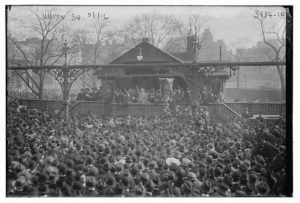
authentic day: “a socialist and labor union demonstration celebrating International Labor Day (May Day) in Union Square, New York City, May 1, 1916”
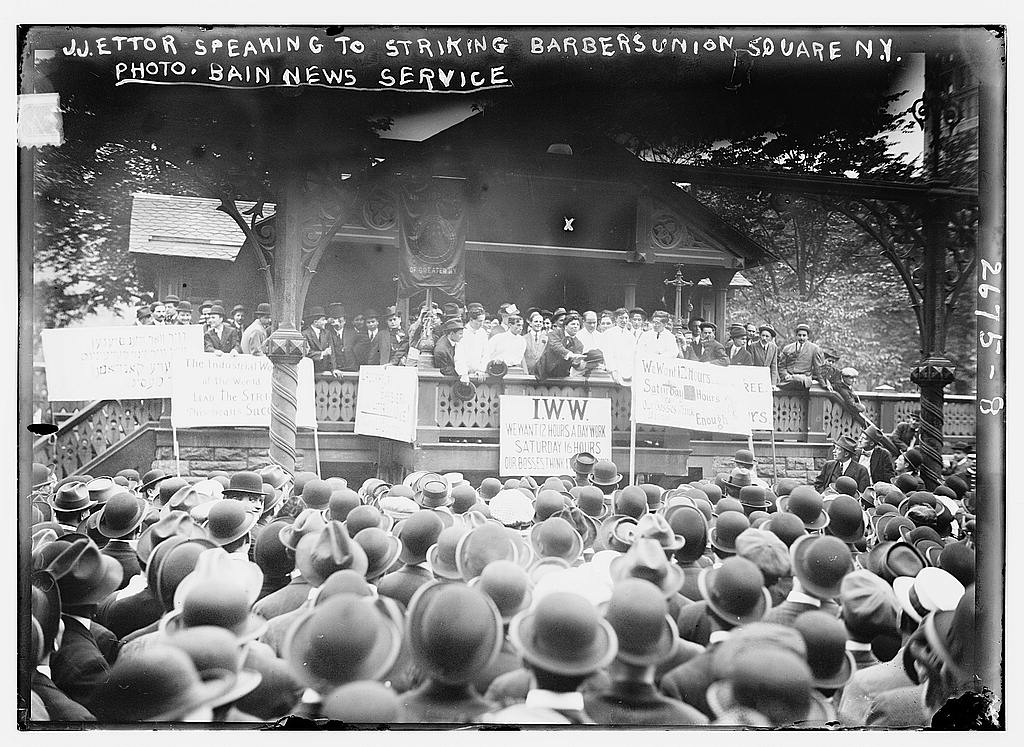
“labor leader Joseph James Ettor (1886-1948) speaking during the Brooklyn barbers’ strike of 1913, Union Square, New York City”
Seems like it’s time for a little “Work Song” (at Youtube)

